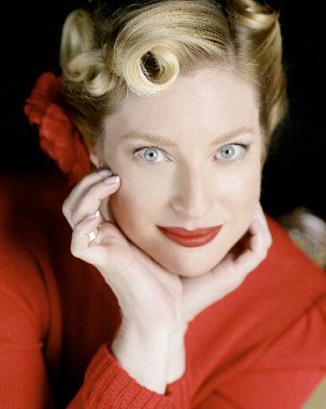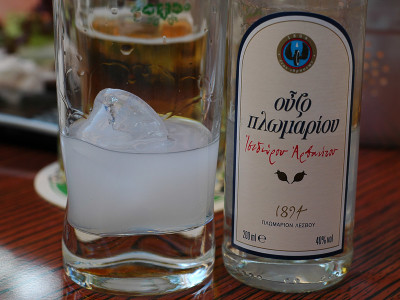
The Modern Butlers’ Journal volume 12, issue 1
International Institute of Modern Butlers
Message from the Chairman
Another of those relatively rare instances where butlers spar publicly with their employers through the media and legally through the courts comes to us this month from Hollywood, only this is not a movie, but real life. This one, like all the other examples, is one where the butler community loses face because of the actions of those who never should have been butlers, and only the lawyers and muck-racking tabloids win.
If an employer is not remunerating as promised or expected, then sort it out privately or find another employer. If an employer blows up at you, then that is what that stiff upper lip is all about, and the age-old standby, maintaining your dignity. Not to mention having an ounce of understanding and compassion—yes, employers are human and sometimes fly off the handle. What are you doing demonstrating human frailties, too? You are meant to be a butler: above all that.
Butling is not all about posing with blingy bosses and filing your nails every day while collecting a stratospheric salary, no matter how many articles and promotional pieces are written painting such a picture. As anyone who really is a butler knows, there are tougher moments to work through, and the reward for doing so is a stronger you and a stronger relationship with the employer.
For the butler involved, and any of the same mindset, time to grow up and join the ranks of real butlers, or quit while you are still ahead.
As for the rest of us, may 2016 be all you wish it to be!
Letters to the Editor
“I had a conversation with someone about how butlers are addressed by their surname, but without an honorific [i.e. Mr./Mrs]. Will you explain why butlers (and household servants generally) are addressed by surname without honorific?” JW
Ed: I have no certain idea, but can say that in earlier centuries in England, members of the upper or middle classes talking to the lower class, or senior officers to junior officers, always referred to them without an honorific, as a subtle way of distinguishing classes or seniority. Likewise, the juniors/lower classes always addressed the seniors in station or rank by the appropriate honorific; as well as addressing each other with honorifics as a professional mark of respect.
I know this applies to the UK, but have no information on other countries. The same convention existed at public (private boarding) schools, where students were (at least in the 1960’s when I attended) addressed simply by their surname.
“Subtle signaling of seniority” is the short answer, but I have no reference from an authority such as Emily Post to confirm my opinion. Which brings me to another potential resource for you: The various schools of etiquette and/or protocol, who beyond teaching proper forms of address, may know the whys and wherefores. Hope this helps somewhat.
“I just finished reading your article in the International Luxury Hotel Association, Issue 3, and wanted to say thank you. It is a wonderful, much-needed reminder.” NS
Butlers in the Media
Taking our Name in Vain
Craig’s List carries an advertisement for an Airport Butler for a Concierge company offering “personalized service and extra care when arriving, departing or connecting through an airport.”
Also appearing on Craig’s List is a Shaving Butler—a mirror with small draws beneath it, that is placed on top of a chest of drawers—perhaps from the days when shaving was done using a bowl of water.
Then we have a Toilet Butler, holding extra rolls and magazines. And a Bar Butler, which is a cloth to place over brushes used for cleaning glasses in a bar.
A Bike Butler is advertised to hang up a bicycle for storage—not perhaps realizing some other imaginative soul already calls his or her bicycle stand a Bike Butler.
And from the UK, we find Wellness Butlers, also a Concierge service, being offered at some hotels.
The whole point of marketing is that one finds a way to stand out from the crowd. One would have thought, after decades of marketeers asking themselves what represents a superior service experience for their customers, with which they can identify their product or service, that they push beyond the first idea that comes into their mind and try something less trammeled and tired.
Temp Butlers
$12 an hour to be “a butler” in a banqueting company in London….
A Japanese gentleman is interviewed about a butler company he has established from nothing (no training), and apparently turned into quite a success in Japan. He is joined by quite a few others around the world riding on the coat tails of the butler profession while having no idea about butling, but has succeeded, it seems, because he is passionate about service. No doubt it helps when the clientele have Japanese anime and manga as their reference point, and it might not work with well-heeled clients who expect a level of sophistication and knowledge that may be missing in his untrained personnel; but if one is providing superior service, then passion and a basic understanding of discreet service, which this gentleman seems to have, are the best starting point. We wish him well.
And finally, a good article on butlers and technology.
The second and final installment of the Chairman’s article, Would You Like Your Service Today Live or Programmed, Madam? has been published, initially by Hotel Business Review magazine in November. The entire article can be read here.
Let’s Talk about Mixology, Part 8
by Amer Vargas
The Three Wise Men
Happy 2016!
 The arrival of the New Year doesn’t bring to an end the Christian Holiday season in some parts of the world, because celebrations continue until the traditional arrival of the Three Wise Men on January 6th, bringing gifts of toys, games, and sweets to children who have behaved well throughout the year.
The arrival of the New Year doesn’t bring to an end the Christian Holiday season in some parts of the world, because celebrations continue until the traditional arrival of the Three Wise Men on January 6th, bringing gifts of toys, games, and sweets to children who have behaved well throughout the year.
In homage to these Three Wise Men, we talk today about the cocktail bearing that name, too.
It is a very simple and straightforward concoction for whisky lovers, served in a highball or lowball glass, neat or on the rocks, according to the drinker’s taste.
 The ingredients are…three (what a surprise, right?): Johnny Walker—Red or Black Label—Scotch Whisky (yes, that is the correct spelling for European Whisky); Jack Daniel’s Tennessee Whiskey (and yes, that is the correct spelling for American Whiskey); and Jim Beam –White or Black label—Kentucky Bourbon Whiskey. They are served in equal parts.
The ingredients are…three (what a surprise, right?): Johnny Walker—Red or Black Label—Scotch Whisky (yes, that is the correct spelling for European Whisky); Jack Daniel’s Tennessee Whiskey (and yes, that is the correct spelling for American Whiskey); and Jim Beam –White or Black label—Kentucky Bourbon Whiskey. They are served in equal parts.
Some interesting variations exist: the Southern Western follows the same recipe and presentation but substitutes Tequila for Scotch; for a Three Wise Men Go Hunting, add an additional part of Wild Turkey Bourbon; from the movie Three Men and a Baby comes another variant, adding one part milk; the Tropical Wise Men is done with Tennessee Whiskey, Tequila, and Dark Rum in equal parts; and lastly, if you want to enjoy a Three Wise Men and a Mexican add an additional part of Tequila to the original recipe.
Mix and enjoy, it’s easy!
Mr. Vargas is the Institute’s President and can be contacted via AmerVargas @ modernbutlers.com
Placement
A Head Butler position needs to be filled in a major upscale chain hotel with a long history of employing butlers. US work-permit required, 60K pa or DOE and your salary requirement. Email us your CV/Resume if you’re interested in finding out more.
Of Butlers and Roses, Part 21 of 25
by GJ dePillis
Calendar For Rose Bush Care and Pruning
Some roses bloom once a year, and some repeat flowering a couple of times a year. For a basic rose, prune between December and February, take the petals off before it becomes too hot in the summer, and prune lightly in September.
Prune the center dead canes (thick stems) to improve air circulation as well as allow light to penetrate into the interior of the plant. Allowing light to come in decreases the likelihood of unwanted mold or mildew growth.
 Some rose bushes are dense and can be shaped into attractive and clean lines, providing an opportunity to be creative in shaping the rose bush.
Some rose bushes are dense and can be shaped into attractive and clean lines, providing an opportunity to be creative in shaping the rose bush.
Several sites offer rose-care calendar activities throughout the year, such as the Orange County Rose Society in California.
|
Month |
Activity |
|
January |
Prune, plant and repot roses. Do not fertilize until there is 3 inches of growth. |
|
February |
If soil temperature is not at least 60-degrees Fahrenheit, continue pruning. |
|
March |
Assuming 3” of growth, fertilize with nitrogen for green leaves, phosphorus for healthy blooms, and potassium for strong canes. Do NOT use “indoor plant” food, as that may result in a green rose bush, but one without flowers. |
|
April |
The roses may give their first bloom, but pests may also appear: Keep bushes deep watered and procure a couple pounds of ladybugs to eat any aphids if needed, and, as a last resort, spray. |
|
May |
The warmer the weather, the more frequent watering is required:
If the weather is this hot…then water this much…
For clay soils, add compost or gypsum to allow for drainage to keep the rose roots healthy. |
|
June |
Watch for mildew during the foggy days. Use Fungicides to prevent mildew, rust, blackspot, downy mildew, and anthracnose. Remove parts of the plant infected with anthracnose and disinfect the tools used before moving onto another plant. Water during the day, not at night, to avoid encouraging mildew growth. |
|
July |
Unless the temperature is over 85F degrees, spray as needed to manage thrips and other pests. |
|
August |
Prune back the top third of the bush, but keeping the leaves on. |
|
September |
Look for buds with holes in them and remove them (pests live inside them). Prune again if needed. |
|
October |
Final feedings to maximize growth for the rose shows that commonly occur at this time of year. |
|
November |
Water to supplement the precipitation if needed. |
|
December |
Roses may well be dormant—a good time to plan for which roses to buy for the following year. |
 Lastly, this website provides further insight into which roses are best to prune and when.
Lastly, this website provides further insight into which roses are best to prune and when.
Ms. dePillis is a freelance contributor to the Journal who is based on the West Coast of the United States. She can be reached via depillis at gmail.com
 Consulting the Silver Expert
Consulting the Silver Expert
by Jeffrey Herman
Q: What are the white spots I see on my plated piece?
A: This phenomenon usually occurs on a freshly plated piece where moisture has migrated to the surface. Even if the piece were properly dried after plating, some spots may still appear over a short period of time. This is true especially where the base metal is a lead alloy or pewter that was not nickel-plated before being plated with fine silver. The nickel would normally keep any moisture from migrating to the surface. Polishing usually makes these spots disappear, but often only on a temporary basis. To achieve a more permanent fix, after polishing, heat the piece with a hair dryer (do not do this if your piece is weighted (see the December 2015 issue for the definition of weighted sterling) until it is warm to the touch. You may have to repeat this procedure a few times until the white spots no longer re-appear.
Mr. Herman continues to offer his services to our readers for any questions you may have about the care of silver. Either call him at (800) 339-0417 (USA) or email jeff at hermansilver.com
The Institute is dedicated to raising service standards by broadly disseminating the mindset and skills of that time-honored, quintessential service provider, the British Butler, adapted to the needs of modern employers and guests in staffed homes, luxury hotels, resort, spas, retirement communities, jets, yachts, & cruise ships around the world.


















